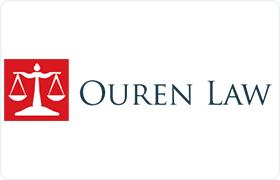Grandview White Collar Crime Lawyer, Washington
Sponsored Law Firm
-
 x
x

Click For More Info:
-
Ouren Law
4101 South Union Street Kennewick, WA 99337» view mapCriminal Defense Dedicated. Straightforward. Tough.
With more than a decade of experience, Attorney Ouren has helped many clients achieve successful results in their family law and criminal law matters.
800-971-6601
Not enough matches for Grandview White Collar Crime lawyer.
Below are all Grandview Criminal lawyers.
Tyler C Everett
Real Estate, Estate, Family Law, Criminal
Status: In Good Standing Licensed: 24 Years
Daniel R Peterson
Traffic, Transportation & Shipping, Criminal, Personal Injury
Status: In Good Standing Licensed: 49 Years
Alex Stephen Newhouse
Juvenile Law, Traffic, Municipal, Civil Rights, Criminal
Status: Deceased Licensed: 17 Years
Howard M. Saxton
Land Use & Zoning, Federal, Estate Planning, Criminal
Status: In Good Standing Licensed: 36 Years
Elisa V Riley
Commercial Real Estate, Federal, Estate Planning, Criminal
Status: In Good Standing Licensed: 20 Years
Jordan Dale Beck
International Tax, Estate Planning, Criminal, Credit & Debt
Status: In Good Standing Licensed: 13 Years
Christi L Phillips
International Tax, Estate Planning, Criminal, Credit & Debt, Wills
Status: In Good Standing Licensed: 31 Years
Douglas Kell Garrison
Estate Planning, Criminal, Administrative Law, Bankruptcy
Status: In Good Standing Licensed: 24 Years
 Kimberly Ouren Kennewick, WA
Kimberly Ouren Kennewick, WA Practice AreasExpertise
Practice AreasExpertise
